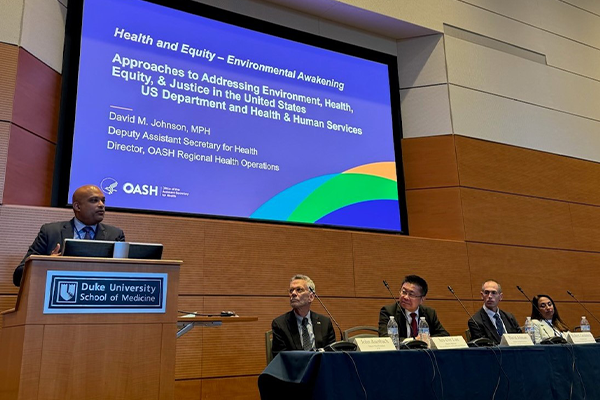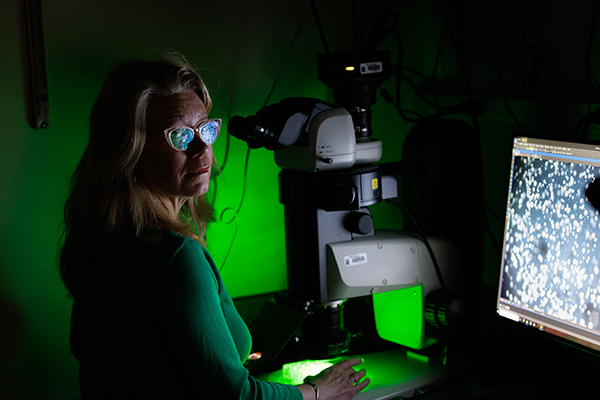A Scientist's Race Against Fungal Evolution
In a new study, scientists at Duke University School of Medicine have identified a potential new front in the battle against fungal infections, a growing health threat. By determining two structures of a crucial enzyme involved in fungal survival, scientists have pinpointed a pathway that could be key to developing new antifungal drugs.
Climate Change & the Brain
A report published in October 2023 and released by the American Psychological Association and ecoAmerica found “prenatal impacts of climate change can derail the normal development of physiological systems, cognitive abilities and emotional skills in ways that are sometimes irreversible.”
Individuals and Groups Collect Climate and Sustainability Awards
Scholars in the School of Medicine were among 19 individuals and teams recognized Thursday with Climate Commitment Leadership Awards at the annual Duke Climate Commitment Celebration event.
Infectious Fungi Are Loving Global Warming
Climate change has the potential to make fungi even more hazardous to our health, according to research from Asiya Gusa, PhD. A video from Duke University explains more.
How Climate Change Affects Health: A Conversation with Robert Tighe, MD
Executive Vice President for Health Affairs and Dean of the Duke University School of Medicine Mary Klotman, MD, talks with Robert Tighe, MD, about the school’s new climate change research strategy, emphasizing the critical need to address the climate crisis and its impact on health.
Facing the Unequal Impacts of Climate Change
In 2023 the global temperature climbed to the highest on record since the industrial revolution, and in the United States, heat-related deaths doubled between 1999 and 2023. Adverse effects of climate change often amplify risk for the most vulnerable groups, including the elderly, those with low incomes, and mothers and children.
New Hope for Fighting Fungal Infections
Mapping the structure of an enzyme crucial for fungal survival also sheds light on how climate change is affecting the fungal world.
Hidden Players in Climate Change: How Microscopic Proteins Could Shape Our Future
New research reveals shape-shifting proteins may help some organisms, like plants, adapt to rising temperatures. But this same ability could also lead to the emergence of dangerous fungal pathogens
Black Adults at Risk for Alzheimer’s Disease Live in More Polluted Areas, U.S. Study Finds
Study of 107 older adults finds that non-white New York and North Carolina residents with mild cognitive impairment reside in places with more environmental injustices than their white peers.
Climate Change and Health
Health experts at Duke University School of Medicine are scrutinizing the myriad ways in which shifting environmental conditions, from sweltering temperatures to severe storms, shape our well-being.









